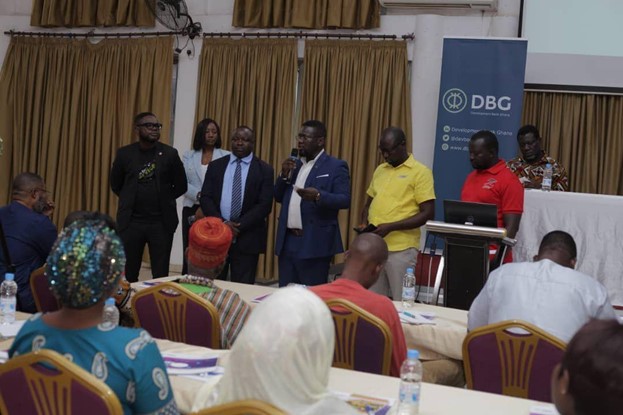The Head of Business Development Service at Development Bank Ghana (DBG), Anita Solomon, has underscored the need for micro, small and medium enterprises (MSMEs) to take book-keeping and other forms of record-keeping in their businesses seriously.
According to her, lack of proper record-keeping – especially financial records, sale of goods and stocktaking among others by MSMEs – can be disadvantageous to the growth and sustainability of their businesses.
Ms. Solomon made the call in response to concerns raised by some MSME operators at a workshop organised by the Ghana National Chamber of Commerce and Industry (GNCCI) and DBG at Tamale in the Northern Region.
“We do capacity building to de-risk MSMEs because we know that there are a lot of challenges, like lack of book-keeping and audited accounts that limit these MSMEs access to financing and other opportunities,” Ms. Solomon said to B&FT on the workshop’s sidelines.
The event, dubbed ‘Empowering SMEs with the requisite business skills for sustainable growth and resilience’, brought together participants from various regions – including the Upper West, Upper East, North East, Northern and Savannah Regions.
A greater number of participants in the workshop complained about their inability to afford the services of auditors – the reason they do not have audited accounts or statements which would enable them to qualify for loans and other financing opportunities.
However, in response to the MSMEs’ concerns – in an interview with B&FT on the sidelines of the one-day workshop, Ms. Solomon encouraged them to begin with simple book-keeping practices on their finances and sale of goods until they can afford the services of auditors.
“DBG has been set up to help the private sector through long-term lending. So as a wholesale bank, our business model is to work through partner financial institutions like commercial banks by giving them money for on-lending to MSMEs,” she said.
In addition to addressing the importance of record-keeping, the workshop aimed to introduce DBG’s partner banks – such as Access Bank, Consolidated Bank, Cal Bank and Zenith Bank in the Northern sector – to businesses and raise awareness about DBG’s role as a bank.
“We want to reach a stage where MSMEs are able to access funds through our partner financial institutions. So as part of the programme that we have put together today, we are going through a process of learning whereby we’re building the capacity of about 100 SMEs in areas of risk management, financial management, and environmental, social and governance (ESG) policies. This is what we mean by de-risking our MSMEs,” she stated.
Ms. Solomon outlined the goal of enabling MSMEs to access funds through partner financial institutions, emphasising the importance of building capacity in risk management, financial management, and environmental, social and governance (ESG) policies. She urged startups to implement ESG policies and human capital policies, and maintain organised accounts for a minimum of three years to enhance their bankability.
She added: “We are actively onboarding savings and loans companies and other financial institutions to reach more MSMEs operating in areas where commercial banks have limited presence”.
DBG has already made a positive impact in the MSME landscape by providing loans to businesses that meet the criteria. Ms. Anita Solomon mentioned: “We recently granted loans to woman-led businesses employing over 450 people, with approximately 150 of them being women. Through our capacity building efforts, we have also facilitated access to markets for certain companies – including training youths in marketing their products through websites”.
Second National Vice President of the GNCCI, Stephane Miezan, confirmed that similar workshops have been conducted in other regions, and will continue to cover the middle-belt of the country. Miezan emphasised that without proper record-keeping, businesses risk missing out on valuable opportunities such as partnerships and access to loan schemes for expansion and sustainability.
The workshop served as a platform for MSMEs to understand the importance of effective record-keeping and gain insights into DBG’s role in supporting their growth and resilience. With a focus on capacity building and financial inclusion, DBG and its partner banks strive to empower MSMEs throughout Ghana; thus contributing to overall development of the country’s entrepreneurial ecosystem.










